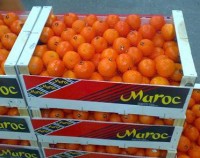Green Med Journal
The agricultural sector of Morocco followed a growth trend with a 7.6% annual rate since 2008, while food exports have increased of 34%, reports the Moroccan Minister of Agriculture, Aziz Aanuch.
According to the Minister, these amounts are the results of the “Plan Maroc Vert”, an ambitious rogram of modernagricultural modernisation introduced in 2008 which caused than average growth of 48% of the per capita PIL made from agriculture in rural areas during 2008-2013.
Ajanuch underlined the importance of agriculture in the country’s IL, adding that the Plan followed a “rigorous path” allowing the sector to reach a “dynamism never seen before”. The Plan Maroc Vert has, in fact, contributed to consolidate the export of fruit and vegetables product – especially clementines and tomatoes – making Morocco the third biggest exporter of agricultural produce of the MENA (Middle East and North Africa), the fourth considering the whole African continent. Concerning exports, the Moroccan website agriculture.gov.ma reported that Moroccan and European institutions are satisfied with the system of entering prices for fruit and vegetables produce introduced last October and based on the VFT (Value Fix Tax). The new system – defined as fair and transparent for all operators – has been applied thanks to an attentive monitoring of produce originally from Morocco – tomatoes in primis – so that, like previous year – no problem of volatility of prices on the Community market was detected.
The growth of the Moroccan sector seems destined to continue the Plan Maroc Vert foresees alsto to plant an additional 13 million fruit trees while a farsighted policy of trade is being carried forward concerning exports. The measure of coordination with end markets foresee in fact the care of quantities and quality of produce as well as a periodical revision of the developments made by the trade situation. In addition, the action of coordination is extended to extra-EU markets which absorb an important quality of tomatoes and thus contribute to set an internal balance to the European market.







